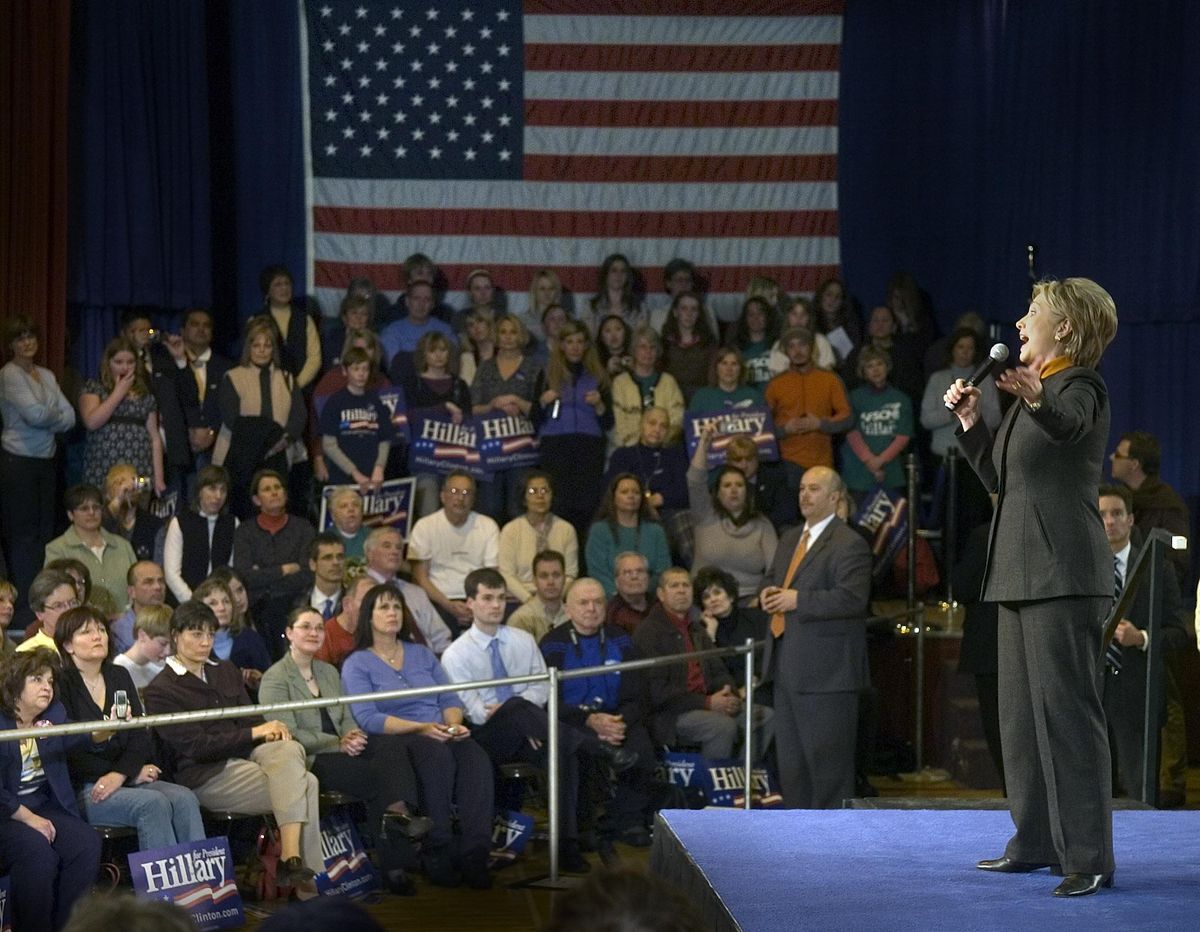Spokane: Occasional crossroads on the presidential campaign trail

Some election years, Spokane is a popular stop on the presidential campaign trail for candidates and their stand-ins. Other years, not so much.
Vermont Sen. Bernie Sanders and former President Bill Clinton scheduled for Spokane events next week might remind some local Democrats of 2008, when Hillary Clinton and Michelle Obama had campaign stops less than two miles apart on the same day.
The former first lady who was running for president gave a speech at the West Central Community Center on the same afternoon the future first lady who was stumping for her husband gave one at the restored Fox Theater.
Local Democrats who wanted to attend both that year couldn’t. This year’s scheduling is a bit better, and the undecided who want could make plans to attend the Sanders rally on Sunday night and the Clinton “organizing event” the next day as soon as details on the latter are announced.
This will be Sanders’ first political foray into Spokane. Bill Clinton campaigned in downtown Spokane in July 1992 to kick off a West Coast swing after securing the Democratic nomination.
Hillary Clinton was his stand-in – campaigns call them surrogates – in February that year, speaking to Democrats at the Ridpath Hotel in an effort to generate support for her husband before the state’s precinct caucuses.
The most active year for candidates and their surrogates to visit Spokane may have been 1984, when the city saw visits from First Lady Nancy Reagan, President Reagan’s daughter Maureen Reagan, Vice President George Bush, Democratic nominee Walter Mondale, his wife Joan in a separate visit, and Democratic vice presidential candidate Geraldine Ferraro. As vice president, Walter Mondale had been to Spokane during the 1980 campaign.
Presidents and former presidents have made occasional stops in Spokane, although not always tied to campaigns. The first president to visit the city was Teddy Roosevelt, in 1903. He came back in 1911, when he was out of office but thinking about running again for president. William Taft attended a banquet at the Davenport in 1909 and made a speech at the Interstate Fair in 1911.
Woodrow Wilson didn’t campaign for election or re-election, but stopped in Spokane in 1919 on a campaign to get support for the League of Nations. Thirteen days later, while still on that tour, he fell ill and eventually suffered a stroke. Warren G. Harding stopped in 1923, suffered food poisoning a few days later in Seattle and died a month later in San Francisco.
Franklin D. Roosevelt stopped twice on his way to the Grand Coulee Dam project. Harry Truman made three appearances, the most of any incumbent. His June 1948 stop, in the midst of his election campaign, was when he called The Spokesman-Review one of the two worst newspapers in the country – an assessment he repeated in 1952. Truman also stopped in 1950 after dedicating the dam, and spoke at Gonzaga University.
Richard Nixon visited Spokane in 1954 as vice president and returned as president in 1974 to open Expo ‘74. Before the fair closed, he had resigned. His replacement, Gerald Ford, never visited Spokane as president, although he spoke at the Eastern Washington University centennial celebrations in 1982. He also made a brief stop, with wife Betty, at Spokane Airways in 1990 when his private plane was being refueled en route from Denver to Alaska.
Jimmy Carter dedicated Riverfront Park in 1978, and stopped at the city after the Mount St. Helens eruption. Ronald Reagan campaigned for then-Sen. Slade Gorton at the old Coliseum in 1986. George H.W. Bush campaigned in Riverfront Park in 1988 as his party’s nominee, then came back as president in 1989 with then-Speaker Tom Foley to plant tree there. He stopped in Spokane in 1992 on the way to a campaign event in Colville, and returned to campaign for his son in 2000 at a Spokane Falls Coummunity College rally.
George W. Bush campaigned for president in Spokane in 1999, speaking against breaching the Snake River dams, and returned as president in 2004 to stump for re-election and fellow Republican George Nethercutt who was running for the U.S. Senate. In 2004 several Democrats who wanted to replace Bush visited Spokane; John Kerry, Howard Dean and Dennis Kucinich all showed up in the days before the caucuses.
Candidate spouses can be popular surrogates. Barbara Bush campaigned in Northwest Spokane in October 1988, knocking on doors to urge people to vote her husband and ending at a neighborhood ice cream social. Her daughter-in-law Laura Bush spoke at a downtown luncheon in February 2000 when George W. Bush was running in a crowded field for the GOP nomination. The same week, Tipper Gore, then-wife of then-Vice President Al Gore spoke at a downtown breakfast. The scheduling wasn’t purely coincidental, it was right before each party’s caucuses.